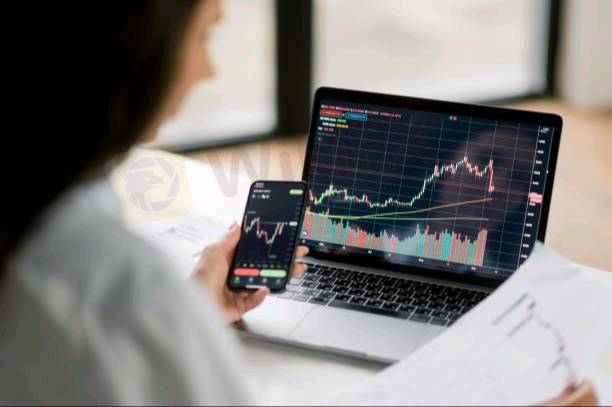
2025-01-29 06:01
업계Role of Blockchain Technology in Trading
#firstdealofthenewyearFateema
Blockchain technology, a decentralized and secure digital ledger system, has the potential to revolutionize financial markets and trading practices. This post explores the applications of blockchain in trading, its potential benefits, and the challenges associated with its widespread adoption.
Applications of Blockchain Technology in Trading
Blockchain technology can be applied to various aspects of trading, including:
Digital Asset Trading: Blockchain enables the creation and trading of cryptocurrencies, such as Bitcoin and Ethereum, as well as other digital assets like security tokens and utility tokens.
Trade Settlement and Clearing: Blockchain-based solutions can streamline trade settlement and clearing processes by reducing the need for intermediaries and enabling faster, more secure transactions.
Supply Chain Management: Blockchain can improve transparency and traceability in supply chains, facilitating the trading of goods and commodities while reducing the risk of fraud or error.
Benefits of Blockchain Technology in Trading
Blockchain offers several potential advantages for the trading ecosystem:
Decentralization and Security: By eliminating the need for centralized intermediaries, blockchain technology enhances security, reduces counterparty risk, and lowers the potential for fraud or manipulation.
Efficiency and Cost Savings: Blockchain-based solutions can expedite trade settlement times, reduce transaction costs, and improve operational efficiency, benefiting both traders and financial institutions.
Transparency and Accessibility: The transparent and immutable nature of blockchain transactions can enhance trust and accountability, potentially widening access to financial markets for underserved individuals and communities.
Challenges and Limitations
While blockchain technology holds great promise for trading, several challenges must be addressed for its widespread adoption:
Regulatory Uncertainty: The legal and regulatory framework for blockchain-based trading is still evolving, creating uncertainties for market participants and potential barriers to innovation.
Scalability and Performance: Existing blockchain networks may struggle with scaling issues and slow transaction processing times, limiting their potential for large-scale trading applications.
Adoption and Interoperability: For blockchain technology to reach its full potential in trading, widespread adoption and seamless integration with existing financial infrastructure are necessary, which may take time and require significant investment.
In conclusion, blockchain technology has the potential to transform trading practices by enabling decentralized, secure, and efficient transactions across various asset classes. While challenges remain, ongoing innovation and collaboration among stakeholders can pave the way for a future where blockchain plays a central role in the evolution of financial markets.
좋아요 0
FX3347547979
交易者
인기있는 콘텐츠
시장 분석
투자주체별매매 동향
시장 분석
유로존 경제 쇠퇴 위기 직면
시장 분석
국제 유가는 어디로
시장 분석
미국증시 레버리지(Leverage)·인버스(Inverse)형의 ETF, 최근 사상 최대 신
시장 분석
투기장 된 원유 ETL...첫 투자위험 발령
시장 분석
RBNZ 양적완화 확대
포럼 카테고리

플랫폼

전시회

IB

모집

EA

업계

시세

인덱스
Role of Blockchain Technology in Trading
 파키스탄 | 2025-01-29 06:01
파키스탄 | 2025-01-29 06:01#firstdealofthenewyearFateema
Blockchain technology, a decentralized and secure digital ledger system, has the potential to revolutionize financial markets and trading practices. This post explores the applications of blockchain in trading, its potential benefits, and the challenges associated with its widespread adoption.
Applications of Blockchain Technology in Trading
Blockchain technology can be applied to various aspects of trading, including:
Digital Asset Trading: Blockchain enables the creation and trading of cryptocurrencies, such as Bitcoin and Ethereum, as well as other digital assets like security tokens and utility tokens.
Trade Settlement and Clearing: Blockchain-based solutions can streamline trade settlement and clearing processes by reducing the need for intermediaries and enabling faster, more secure transactions.
Supply Chain Management: Blockchain can improve transparency and traceability in supply chains, facilitating the trading of goods and commodities while reducing the risk of fraud or error.
Benefits of Blockchain Technology in Trading
Blockchain offers several potential advantages for the trading ecosystem:
Decentralization and Security: By eliminating the need for centralized intermediaries, blockchain technology enhances security, reduces counterparty risk, and lowers the potential for fraud or manipulation.
Efficiency and Cost Savings: Blockchain-based solutions can expedite trade settlement times, reduce transaction costs, and improve operational efficiency, benefiting both traders and financial institutions.
Transparency and Accessibility: The transparent and immutable nature of blockchain transactions can enhance trust and accountability, potentially widening access to financial markets for underserved individuals and communities.
Challenges and Limitations
While blockchain technology holds great promise for trading, several challenges must be addressed for its widespread adoption:
Regulatory Uncertainty: The legal and regulatory framework for blockchain-based trading is still evolving, creating uncertainties for market participants and potential barriers to innovation.
Scalability and Performance: Existing blockchain networks may struggle with scaling issues and slow transaction processing times, limiting their potential for large-scale trading applications.
Adoption and Interoperability: For blockchain technology to reach its full potential in trading, widespread adoption and seamless integration with existing financial infrastructure are necessary, which may take time and require significant investment.
In conclusion, blockchain technology has the potential to transform trading practices by enabling decentralized, secure, and efficient transactions across various asset classes. While challenges remain, ongoing innovation and collaboration among stakeholders can pave the way for a future where blockchain plays a central role in the evolution of financial markets.
좋아요 0
나 도 댓 글 달 래.
제출
0코멘트

댓글이 아직 없습니다. 첫 번째를 만드십시오.

제출
댓글이 아직 없습니다. 첫 번째를 만드십시오.